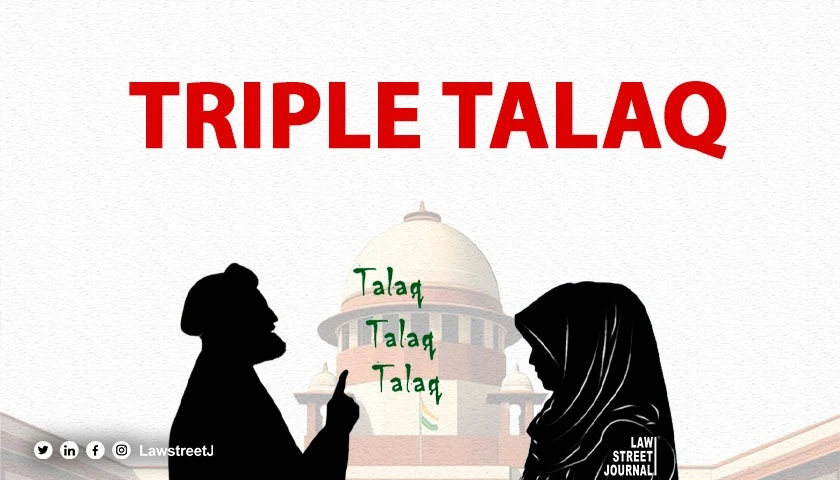NEW DELHI: The Union government has told the Supreme Court that the practice of triple talaq among Muslims was neither legal nor has got religious sanction for it allowed instantaneous voiding of the martial tie, and legitimised abandonment of the wives.
It said Parliament in its wisdom passed the 2019 law as despite the Supreme Court declaring the practice as unconstitutional and NGO All India Muslim Personal Law Board assuring the court of no such incidents in future, the practice had continued unabated among a sections of Muslim, in violation of the fundamental rights of the women.
"The practice of Tala-e-Biddat (instant pronouncement of triple talaq) did not simply result in a private injury but in a public wrong as it militated against the rights of women and the social institution of marriage itself," the Centre said.
In an affidavit, the Ministry of Law and Justice said the Constitution bench in 2017 Shayara Bano case by majority of 3:2 itself has held the practice of triple talaq as unconstitutional, it cannot be argued that a law criminalising the practice is manifestly arbitrary.
"The Shayara Bano case already recognised triple talaq as an aberrant practice. All that the impugned law does is provide for sanctions to enforce deterrence against following of the practice. This can by no means be called arbitrary and is in fact the very essence of criminal law," it said.
The affidavit was filed in a writ petition by Samastha Kerala Jamiathul Ulema questioning the validity of the Muslim Women (Protection of Rights on Marriage) Act, 2019, which made the practice as punishable offence upto three years of jail term.
It said there is no basis to the claim that marriages being under personal law, they are exempt from the application of general criminal laws.
"Marriages are a social institution which the State has a special interest in protecting. It is beyond doubt that the State can protect the stability of marriages by resort to the of criminal law. Enactments such as the Domestic Violence Act, 2005, the Dowry Prohibition Act, 1961 etc are all enacted under the same general principle as the present law i.e. preserving the sanctity of the institution of marriage," it said.
The affidavit also rejected a contention that since the criminal conduct engaged in had no advantageous legal effect for the perpetrator, it cannot be a crime.
"This argument turns the principle of penal laws on their head. In plain terms, petitioners are essentially attempting to argue that the Act ought not to be criminalised because the attempted illegal conduct was not successful in its object. In doing so, petitioners have overlooked the very basis of criminal law. If sanctions did not exist, the prohibition on criminal conduct itself would become a dead letter to be freely disregarded," it said.
The government also said defining offences and prescribing appropriate penalties is a core function of the State.
"Whether or not a particular type of conduct ought to be criminalised, and what punishment is to be imposed for such conduct is to be determined by the legislature in light of the prevailing social circumstances. Whether a particular type of conduct warrants treatment as a civil wrong or a criminal offence is a determination which cannot be made by the courts," it said.
The government also said it is also settled law that the petitioner cannot seek the enforcement of negative equality by contrasting the punishment provided for under one law for wrongful action with others.
"As held in a plethora of cases, Article 14 cannot be used as a tool to enforce negative equality. The practice of Tala- e-Biddat was held unconstitutional and a need was felt to have a standalone legislation to address the same. Therefore, the contentions of the petitioners that the present case ought to be equated with other forms of non-compliance and statutory violations in the process of divorce must be set aside at the outset, as this seeks the perpetuation of illegality which is not covered under Article 14," it said.















